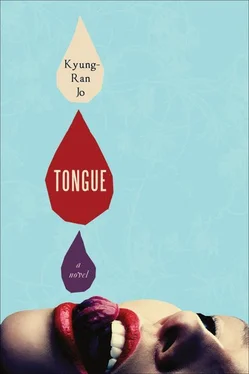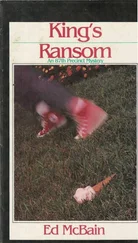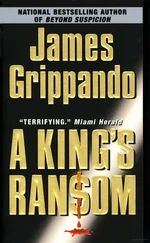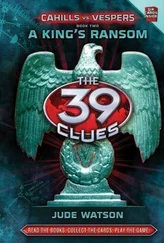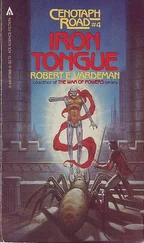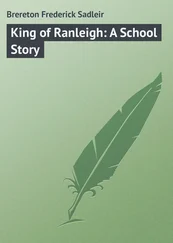I pushed napkins toward Mun-ju, who was crying.
A sated person is different from a hungry one. A hungry one can’t be persuaded to do anything, but a full person can be given boundaries and convinced. So after that, I continued to cook for Mun-ju whenever she popped into the restaurant. I just made the portions a little smaller and helped her to eat slowly, and continued to tell her what she shouldn’t eat, what she should avoid, what she must eat. Like most intelligent and creative people, she knew what she wanted and how to focus her whole being on what she wanted. She wasn’t avoiding food, she was using food to get over her fear of eating. It was unspoken, but that was what we both wanted for her.
A person’s appetite is as precious as salt was in the seventeenth century. Trying to go around the salt officials who confiscated and regulated it, women would hide chunks of it in their cleavage and corsets, between their thighs and buttocks. When the officials squeezed those parts of their bodies, the women would burst out crying in pain. The more you try to take it away, the more people try to hide it. What I could do for Mun-ju was not to hurry, but to wait and watch over her patiently as if I were waiting for the last course of the meal to arrive at the table—this was something anyone could do for a friend. If Mun-ju thought this was special, it was special for me, too. I cooked, she ate. I cooked a little, she gradually ate less.
It took about two years for Mun-ju to transform her physique into a pleasantly plump one. Now, even if there’s food in front of her, Mun-ju doesn’t attack it quickly like a starving person, but has become a woman who knows how to eat a meal leisurely—but with gusto. When she goes on dates, she doesn’t go out again with the men who rush into their food as soon as the first course is placed in front of them, and she even makes me laugh, mimicking them. She was able to get rid of a lot, but Mun-ju hasn’t been able to rid herself of the fear that she might become fat again—not just yet.
I don’t shrink from the fear of gaining weight. For me, the pleasure I get from eating trumps that fear. The taste bud is like a diamond, getting shinier and sparklier the more you polish it. The person with a good appetite is one who wants to live; in the same way, the sense of taste is the first to go when a person loses the will to live. Some people feel alive when they play music, and others feel invigorated when they write or when they shop. These days I’m energized when I eat. I’m ready to eat anywhere, at any time. And there’s something in particular I want to eat—an all-consuming desire. When you can’t have something, the desire for it becomes more powerful and intense.
I’m staring at the biggest and deepest hole in his face. His tongue moves around, supple, like the tongue of a fish, like a bird’s tongue wrapped in soft cartilage, moving carefully, with concentration, like it does when it’s eating the tastiest thing— The. Person. I. Love. Now. Is. Se-yeon , the dark hole says. Like the bumpy, scaly tongue of a four-legged animal, it’s stiff, rough, reddish black. I stare at his red tongue, I want to suck on it one last time. Like a truffle, a tongue renders a woman and a man in a gentler state and is easy to chew on, light and soft. I take a step toward it. You told me with that mouth that you loved me . I’m close enough to swallow it whole. Hold me just one last time , I beg. Don’t , he says, and pushes me away forcefully. I’m hot, like boiling oil. Like a starving person, I crave his tongue. My throat is already lengthening and opening wide, like that of an always-accommodating goose. He pushes my puckered lips away with his hand and backs up. I’m going to wait for you , I warn him gently. He licks his lips with his dry tongue, his tongue that looks parched as if all the juices have drained out of it, and says, That’s never going to happen . At one point it was a familiar and beautiful tongue, filled with admiration and praise for my body as it understood and explored me. I grab and swallow the whole thing down. His tongue resists in my mouth, like a flopping fresh fish. I grip my mouth closed to stop it from escaping. My teeth grab it swiftly and mash it. My muscular tongue wets it with flowing saliva, works it, flips it, moves it deep into my throat. My tongue bends back to push it in deeper, to shove it down completely. Nothing, not one piece, not one drop, escapes from my mouth. It slides perfectly into my stomach. All the nerves in my body vibrate faintly like the end of a needle, and finally I heave a breath out. My tongue, remembering the dish I’ve just tasted, licks my lips.
The food I eat in my imagination is more powerful and particular than what I consume in reality, just as a dream feels very real seconds after you awake from it, just as a person thinking about killing someone first tries it out in his dreams. You go over it again and again in the imaginary world because you’re deprived of whatever it is you want, because there’s something in you that misses it—an unfinished piece of art. Human beings sprint toward pleasure. Unfortunately they feel pain, a joining of sensations, more easily than pleasure.
I’M LEFT BEHIND with the silent old dog, just the two of us. When a dog realizes his noises are no longer being understood as language he stops barking and whining. Language exists between people and also between a person and a dog. Paulie’s the one who taught me that, and his silence now signifies my own. If I thought I would return to Nove after we split up, I might not have taken Paulie. It’s not that I’m not fond of him, but I would have known I wouldn’t be able to take care of a dog. Paulie no longer approaches me happily or wags his tail or whimpers. But he hasn’t turned aggressive or mean like dogs left to fend for themselves. He seems confused about the changes in his life and needs time to accept them. As a dog grows old, the smallest change in his routine becomes the source of great confusion. I gently stroke Paulie’s neck as he lies on the floor like a pile of dirty brown rags. Nervousness and unease unite us now. It’s invisible but we feel the same thing. For the first time in a very long while, Paulie’s rough tongue licks my palm and his slightly averted black eyes study my face as if to say, I haven’t forgotten all of this yet. As if he understands whatever I have to say. But it will be almost impossible to get Paulie to comprehend that he’s gone. For Paulie this concept is more difficult than understanding when he’s allowed to jump up and when he isn’t.
It’ll be okay, Paulie.
Paulie lets out a moan, the sound being dragged up from the bottom of his stomach. I hug him and he glues himself to my body. If only someone were next to me, someone who can understand everything I say. I’m glad I’m not alone but somehow I get the feeling that I will be left by myself soon.
We fall into a comfortable rhythm. When I come home from work I take Paulie out for a walk no matter how tired I am. We usually head to the playing field at the neighborhood elementary school. I didn’t know that so many people exercised in the field that late, approaching midnight. Before, we walked Paulie in the afternoon and almost never went anywhere at night. The evenings dashed by as we cooked and ate and listened to music and played fetch with Paulie in the yard and drank tea. On one of those nights, I watched him play with Paulie in the yard as I cradled a cup of tea and realized that this evening enveloping me was the pinnacle of my life, a solid and brilliant crystal. Everything was in its place and I had everything I had ever wanted and we were still so young. One final sentence was left in the story: They lived happily ever after. His whistle still rings clearly in my ears and I still see Paulie energetically leaping after the ball. And all I have left from that evening is the old dog and the ball nestled in my palm.
Читать дальше
